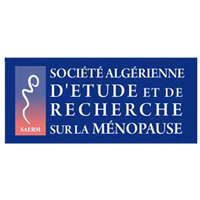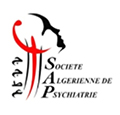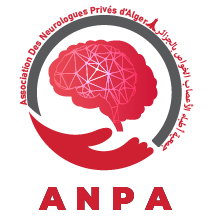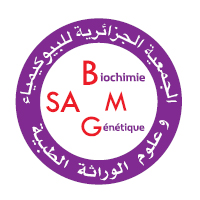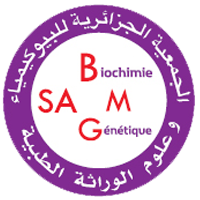Autophagy genes (ATG16L1/IRGM) and IBD : involvement of the ATG16L1 gene in Algerian patients with Crohn's disease
Aziza Boukercha1,2, Amira Bouzidi1, Houria Saoula3, Mhamed Nakkemouche3, Maryline Roy4, Jean-Pierre Hugot4,5, Chafia Touil-Boukoffa1, Hamida Mesbah-Amroun1.
(1) Equipe Cytokines et NO Synthases, Laboratoire de Biologie Cellulaire et Moléculaire, Faculté des Sciences Biologiques, Université des Sciences et Technologies Houari Boumediene, Alger, Algérie
(2) Université M'Hamed Bougara de Boumerdes, Faculté des sciences biologiques, Algérie
(3) Service de gastroentérologie, CHU Maillot, Alger, Algérie
(4) Equipe Inflammation intestinale, INSERM UMR1149, Faculté Xavier Bichat, Université Paris Diderot, France
(5) Service de gastroentérologie, CHU Robert Debré, France
Les maladies inflammatoires chroniques de l'intestin (MICI), la maladie de Crohn (MC) et la colite ulcéreuse (CU) sont des maladies ayant une base génétique complexe. Plus de 163 loci de prédisposition ont été identifiés par des études d'association pangénomique (GWAS), recentrant la pathogenèse des MICI sur les gènes de l'immunité. L'autophagie est un mécanisme fondamental dans le maintien de l'homéostasie intestinale. Le disfonctionnement des mécanismes de l’autophagie semble être un facteur de risque majeur dans la mise en place d'une inflammation intestinale chronique.
Objectif:
Deux polymorphismes mononucléotidiques (SNP) dans deux gènes ont été sélectionnés, à savoir (rs2241880 AàG) pour ATG16L1 et (rs10065172 CàT) pour IRGM. Ces deux gènes sont tous deux impliqués dans le mécanisme d'autophagie. Nous avons étudié ces deux SNP dans un cohorte Algérienne pour la première fois, car aucune étude d'association antérieure entre les MICI et les deux gènes étudiés n'était disponible pour la population algérienne.
Méthodes:
Une étude cas-témoins a été réalisée sur une cohorte comprenant 95 patients algériens atteints de la maladie de Crohn ou de colite ulcéreuse contre 116 témoins. Le génotypage de la cohorte a été réalisé par discrimination allélique par TaqMan SNP Genoytyping.
Résultats
Une association statistiquement significative de la mutation rs2241880 AàG du gène ATG16L1 a été démontrée dans les MICI (p = 0,04) et plus particulièrement dans la maladie de Crohn (p = 0,03) .La présence de cette mutation augmenterait le risque de maladie de Crohn d'un facteur de 2 sous sa forme mutée homozygote GG (OR = 2,11 IC à 95% (1,07-4,16)). Aucune association significative n'a été trouvée pour la mutation rs10065172 CàT du gène IRGM.
Conclusion
Nos données mettent en évidence l'implication du gène ATG16L1 dans la genèse et/ou l'évolution des cas de MICI, notamment la maladie de Crohn, indiquant l'impact que la dérégulation du mécanisme d'autophagie pourrait avoir sur la population algérienne. Il serait intéressant d'élargir l'échantillonnage et de réaliser des études fonctionnelles pour élucider l'impact de la dérégulation du gène ATG16L1 dans les MICI.
Mots-clés: IBD, PCR-RFLP, SNP, ATG16L1, IRGM
Autophagy genes (ATG16L1/IRGM) and IBD : involvement of the ATG16L1 gene in Algerian patients with Crohn's disease
Aziza Boukercha1,2, Amira Bouzidi1, Houria Saoula3, MhamedNakkemouche3, Maryline Roy4, Jean-Pierre Hugot4,5 , Chafia Touil-Boukoffa1, Hamida Mesbah-Amroun1,
(1) Team Cytokines and NO Synthases, Laboratory of Cellular and Molecular Biology, Faculty of Biological Sciences, University of Sciences and Technology HouariBoumediene, Algiers, Algeria
(2) University M'Hamed Bougara of Boumerdes, Faculty of Biological Sciences, Algeria
(3) Department of Gastroenterology, Maillot University Hospital, Algiers, Algeria
(4) Team Intestinal Inflammation, INSERM UMR1149, Xavier Bichat Faculty, Paris Diderot University, France
(5) Department of Gastroenterology, Robert Debré University Hospital, France
email: amrounhamida@yahoo.com
Summary
Introduction:
Chronic Inflammatory Bowel Diseases (IBD) including Crohn disease (CD) and ulcerative colitis (UC) are gastrointestinal disorders under the influence of a complex genetic basis. 163 predisposition loci were identified by genome-wide association (GWAS) studies, refocusing the pathogenesis of IBD on immunity genes. Autophagy is a fundamental mechanism in the maintenance of intestinal homeostasis. Failures of this mechanism appear to be a major risk factor in the setting up of chronic intestinal inflammation.
Aim:
Two single nucleotide polymorphisms (SNPs) within two genes, were selected namely (rs2241880 AàG)for ATG16L1 and (rs10065172 CàT) for IRGM.These two genes are both involved in the autophagy mechanism.We investigated these two SNP in an Algerian cohort for the first time, since no previous association studies between IBD and the two studied genes were available for the Algerian population.
Methods:
A case-control study was performed on a cohort including 95 Algerian patients with Crohn's disease and ulcerative colitis versus 116 Controls. Genotyping of the cohort involved allelic discrimination by TaqMan SNP Genoytyping Assay.
Results
A statistically significant association of the rs2241880 AàGmutation of the ATG16L1 gene was demonstrated in IBD (p = 0.04) and more particularly in Crohn's disease (p = 0.03).The presence of this mutation would increase the risk of Crohn's disease by a factor of 2 in its GG homozygous mutated form (OR = 2.11 95% CI (1.07-4.16)). No significant associations were found for the rs10065172 CàTmutation of the IRGM gene.
Conclusion
Our data highlight the involvement of the ATG16L1 gene in the genesis and/or evolution of IBD cases, notably Crohn's disease, indicating the impact that deregulation of the autophagy mechanism could have on the Algerian population. Nevertheless, it would be interesting to expand the sampling and carry out the functional studies to elucidate the impact of the deregulation of the ATG16L1 gene in IBD.
Keywords : IBD, PCR-RFLP, SNP, ATG16L1, IRGM
Oral Autophagy genes (ATG16L1 / IRGM) and IBD : involvement of the ATG16L1 gene in Algerian patients with Crohn's disease

Pr. MESBAH AMROUN Hamida
Génétique et Biologie Moléculaire à la faculté des sciences et de technologie- USTHB-

Société Algérienne d'Hépato-Gastro-Entérologie et d'Endoscopie Digestive
hôtel el aurassi, alger , 2019-11-28 jusqu'a 2019-11-30
Santedz 2026 ©








